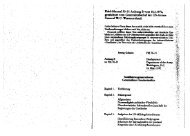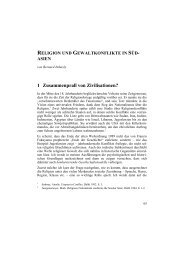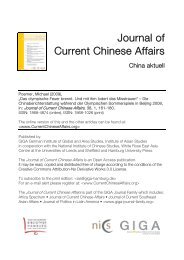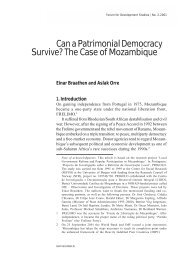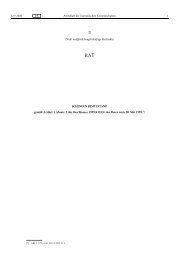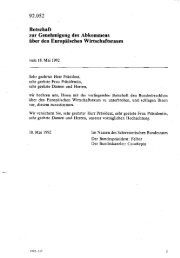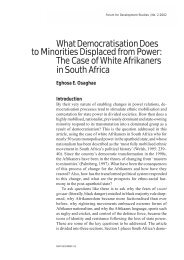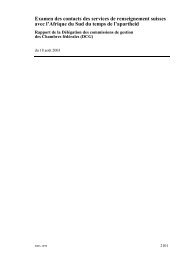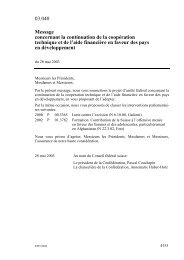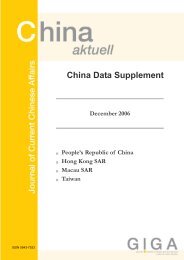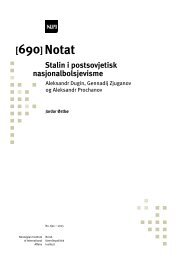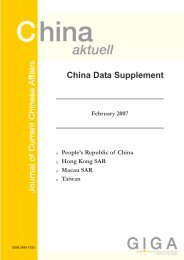Prophetic Politics
Prophetic Politics
Prophetic Politics
Create successful ePaper yourself
Turn your PDF publications into a flip-book with our unique Google optimized e-Paper software.
PROPHETIC POLITICS<br />
acted in accordance with. To be truly effective a political prophecy cannot and must<br />
not enable contesting narratives to be heard. It is the primary object of prophetic politics<br />
to prevent the story recipients from getting the impression that there would<br />
even exist another way of depicting political reality. Unless other charismatic figures<br />
are offered as an option, even a feeble prophet gains acceptance of his vision if it is<br />
able to give the impression of being grounded well enough in common values. Faith<br />
certainly has inspired American politicians from Abraham Lincoln to George W.<br />
Bush but in most cases the inspiration derives from its use as a weapon in politics instead<br />
of it being something that reforms the outcomes of political decision-making.<br />
Gutterman focuses his attention on the actual mechanisms of how prophesies are<br />
communicated and he sees ‘sacred stories’ as the foremost vessels of spreading the<br />
vision. For him prophetic politics simply means that political figures or institutions<br />
base their identities in certain Biblical narratives which enable the formation of relatively<br />
stable political identities and visions. (2005) I argue that any story which is foundational<br />
to a given culture can be viewed as sacred. These sacred stories are so<br />
sedimented into a certain cultural context that they are able to mould the culture and<br />
the vision of politics by setting limits to the more mundane stories that can be told<br />
about related subjects. There is not necessarily anything religious in these stories, but<br />
the term is used to imply their unquestionable status in the given culture. They themselves<br />
create laws of telling within their respective storyworlds by establishing themselves<br />
as ‘common sense’ or simply almost eternal truths. There can be many different<br />
sacred stories and they may differ from one period of time to another. (Gutterman,<br />
2005: 10–15, 30–34) As Corrine Squire argues, master narratives are ‘always less stable<br />
and unified than they appear, more susceptible to fracture and diversion.’ (Cit. Andrews,<br />
2004: 4–5) Even the type of master narrative which practically seems to have<br />
been engraved in stone is teetering on a tightrope. This creates the constant need for<br />
a prophetic politician to rearticulate, reshape and retell his narratives so that they are<br />
more likely to dominate the discourse. Northrop Frye writes:<br />
It is obvious […] that one major source of order in society is an established pattern<br />
of words. In religion this may be a scripture, a liturgy, or a creed; in politics<br />
it may be a written constitution or a set of ideological directives […] Such verbal<br />
patterns may remain fixed for centuries: the meanings attached to them will<br />
change out of all recognition in that time, but the feeling that the verbal structure<br />
must remain unchanged, and the consequent necessity of reinterpreting<br />
it to suit the changes of history, bring the operations of criticism into the center<br />
of society. (Frye, 1957: 349)<br />
Frye allows the sacred story the chance to change its meanings and leave itself open<br />
for reinterpretations. The Constitution and other sacred texts and stories from the<br />
Perspectives Vol. 167, No. 2 2009<br />
101



